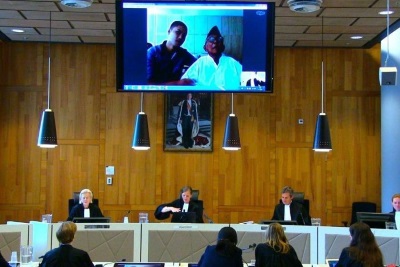 Dutch Torture cases during detention if Indonesians ( source ABC news 8 December 2018 by Indonesia correspondent Anne Barker)
Dutch Torture cases during detention if Indonesians ( source ABC news 8 December 2018 by Indonesia correspondent Anne Barker)
Frail and at times trembling, Yaseman told the judges how the Royal Dutch Indies army had held him captive for more than a year and tortured him in 1947, when he was still a teenager. Dutch forces — fighting to reoccupy Indonesia after World War II — had arrested him on suspicion of being an Indonesian freedom fighter at the height of the 1945–1949 independence war. Soldiers had smashed his skull with a lump of wood and stubbed a cigarette out on his head.
As the judges watched online, he showed them two round scars in his scalp. Yaseman, who has only one name, made multiple torture claims, alleging that he was forced to drink large volumes of water before being kicked in the stomach. He said he was also subjected to electric shock, telling the court wires hooked to a small machine were attached to his finger and sent jolts down his body. "Shocks are worse," Yaseman was quoted as saying in a translated court document. "You can feel a beating once, I can handle that. "But power goes through your entire body and continues to hurt."
Yasemen convinced the Judges of the Dutch Actions
Yaseman was 89 when he gave evidence. But despite his age and frailty, he recounted his story in convincing detail.
"He had such a sharp memory," says his grandson Iswanto, who sat beside him in the "virtual courtroom".But Yaseman didn't live to hear the judges' decision. He died a few months after giving evidence. In July the court accepted his testimony as proof that Dutch forces had indeed subjected him to torture. The court found enough evidence to prove Yaseman's claims about the beatings and the cigarette burns, however, the electric shock and water torture were unable to be verified.
In the ruling, the court did concede the use of such torture methods was "entirely possible".
The Dutch Government was ordered to pay damages and costs worth around $12,000.
Now the Dutch Government is appealing against the court ruling, much to the anger of Yaseman's family and lawyers.
"It is a known fact that the Netherlands engaged in large-scale torture during the independence war," said his lawyer in Amsterdam, Liesbeth Zegveld. "Of all the victims, only one has registered with the court, and that is Mr Yaseman. "It is a shame that the state will not take responsibility, even for this one case."
Setting a precedent and let it be a lesson for St.Maarten?
Ms Zegveld says while the Dutch Government agreed to acknowledge the widows' claims and pay compensation, she has no doubt its appeal against the Yaseman ruling is to prevent these other cases proceeding.
"They want an appeals court to decide that 70 years after the event it is simply too late to bring a case to court, and that time bars should be applied as strictly as they are in other cases," she says. "The state should not be allowed to invoke this defence."One non-governmental organisation representing Indonesian claimants says the Dutch Government refuses to face up to the actions of its forces during the 1945-1949 independence war."The state appeal proves that the Netherlands still takes no responsibility for what happened there," wrote Foundation Committee of Dutch Debts of Honour chair Jeffry Pondaag.
The Netherlands places a high value on protecting and promoting human rights: PM Rutte Response
The Dutch Government maintains it is committed to international human rights and the rule of law.
In 2016 it announced a long-running inquiry into atrocities committed in the last days of its colonial rule in Indonesia and warned the inquiry could prove "painful" for Dutch veterans from that period.
"The Netherlands places a high value on protecting and promoting human rights, international law and the rule of law," Prime Minister Mark Rutte said at the time.
But Mr Pondaag questions the inquiry's independence, given that one of the three research institutions involved — the Netherlands Institute of Military History — comes under the direct control of the Dutch Defence Ministry.
The NMIH "supports the state in opposing and rejecting claims like Yaseman's", he wrote in a letter to the Government last year. The government inquiry is not due to report for several years.
But the Yaseman case has reignited debate about the country's own colonial past and raised questions about whether the Netherlands has fully acknowledged its own history of abuse.
One fact is certain the District Court in the Hague was convinced about the Dutch State violations How could this be possible happening only some 70 years ago and why?
Click here to read the sourced article.










